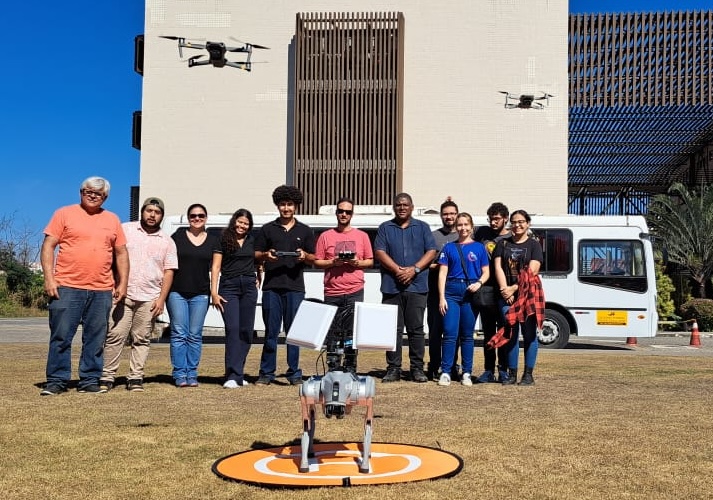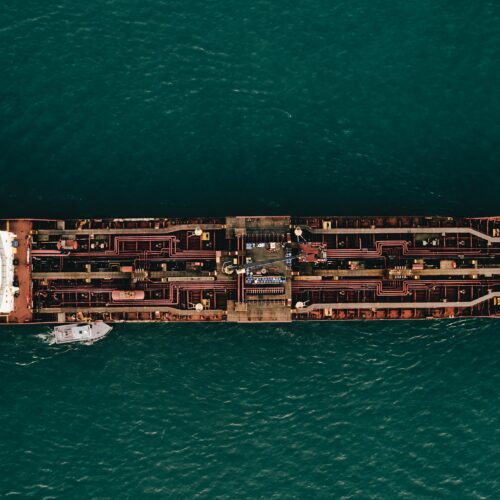Breaking Out News Series – Unlocking Brazil’s potential in ship recycling
We are excited to launch our Breaking Out News Series, in anticipation of the second edition of our Ship Recycling Lab in Lisbon this October. Highlighting innovators who believe in competitive, responsible practices, we challenge damaging methods of ship dismantling on tidal beaches and advocate for safer, cleaner and smarter alternatives.
Our first post focuses on why Brazil is poised to become a significant player in the global ship recycling market. With its extensive coastline and robust maritime industry, many existing facilities, primarily engaged in shipbuilding and repair, have the potential to expand into recycling.
Professor Newton Pereira of Universidade Federal Fluminense (UFF) tells us that Brazil is likely to become an important destination for ship owners looking for the sustainable disposal of their assets. From already existing large infrastructure in the States of Rio de Janeiro, Rio Grande do Sul and Pernambuco to strict national regulations on hazardous waste management, from a soon to be approved national bill mirroring the European Union Ship Recycling Regulation to the shift in policy of the countries oil and gas company Petrobras and the scrapping of Petrobras’ P-32 and P-33 in Brazil, the country stands on the cusp of radical transformation.
UFF plays a is crucial role in this transformation through its Center for Sustainable Systems Studies (CESS/UFF), which focuses on hazardous waste management, optimisation of recycling methods and the scrap steel market to ensure Brazil has a qualified workforce, innovation and resources needed to support its own solutions for ship recycling.


According to recent figures, dozens of fixed and floating oil and gas platforms and more than 300 large commercial ships regularly operating in Brazilian waters will be retired in the next decade. Brazil’s potential in ship recycling will be further explored by several experts, including Petrobras’ representatives and Professor Pereira, at the upcoming Ship Recycling Lab in Lisbon.

Related news

Press Release – Human rights and environmental NGOs urge UNDP to ensure the clean and safe recycling of FSO Safer
The NGOs warn against the possibility of the FSO being scrapped at one of the notorious South Asian shipbreaking yards.
... Read More
Press Release – UAE takes important steps towards sustainable ship recycling
Set to take effect from June 2025, UAE new legislation brings about a ban on the beaching and landing of UAE-flagged vessels as well as all foreign vessels leaving or transiting through UAE waters enroute to scrap yards.
... Read More
Platform News – NGO Shipbreaking Platform demands European Ship Recycling Licence
In a position paper published today, the NGO Shipbreaking Platform calls on the European Commission, the European Parliament and Member States to support the introduction of a… Read More

Press Release – The hypocrisy of better beaches: winners of the “Public Eye Investigation Award” shed light on shipbreaking in Alang and Swiss companies’ involvement
Gie Goris and Nicola Mulinaris received Public Eye’s “Investigation Award”.
... Read More
Platform News – UN Special Rapporteur concerned about German shipbreaking practices
In a written submission to the German Government, UN Special Rapporteur Baskut Tuncak has expressed serious concerns related to the substandard shipbreaking practices of German ship owners,… Read More

Press Release – Bangladesh High Court issues contempt rule against 14 Government Officials: ministries and shipbreakers asked to account for non-compliance with 2009 judgement
The Bangladesh High Court yesterday issued a contempt rule asking 14 Government officials and the president of the Bangladesh Ship Breakers Association (BSBA) to explain why they… Read More


